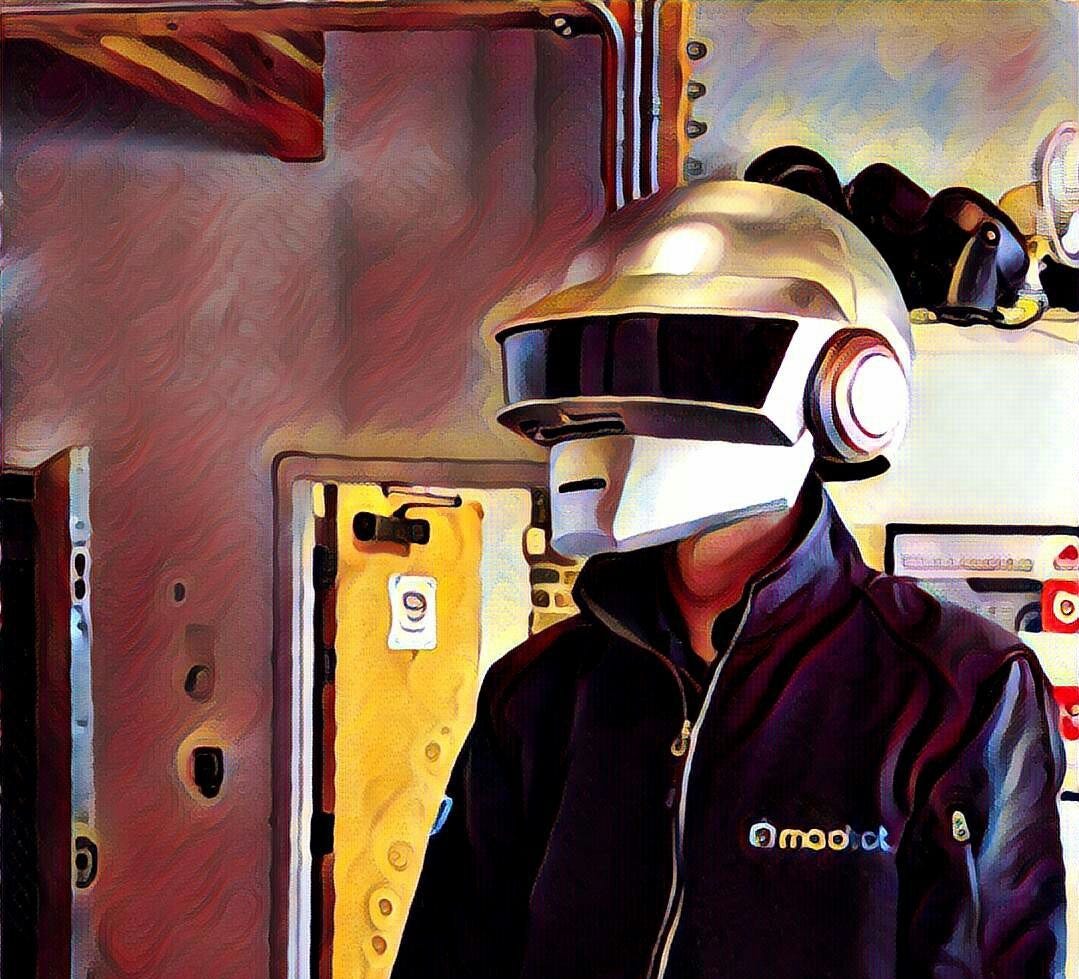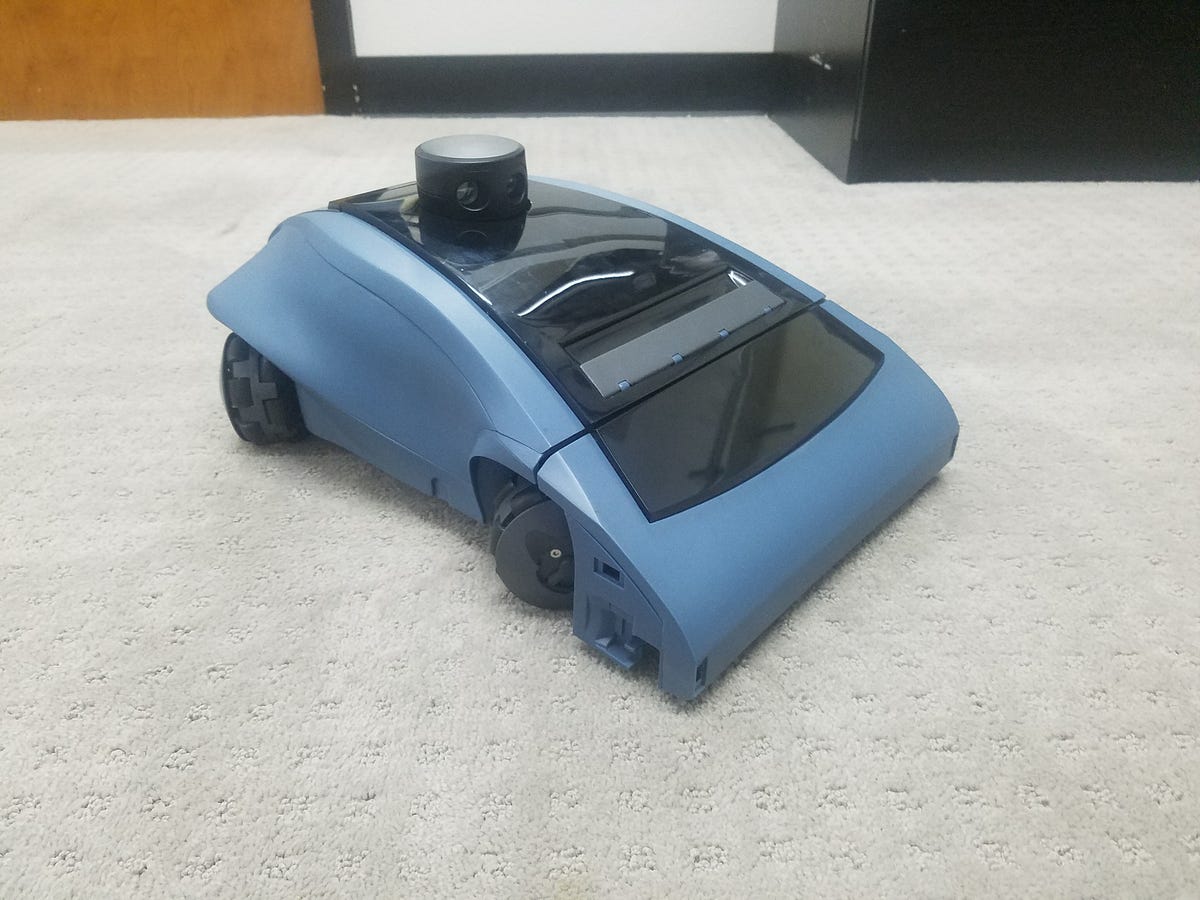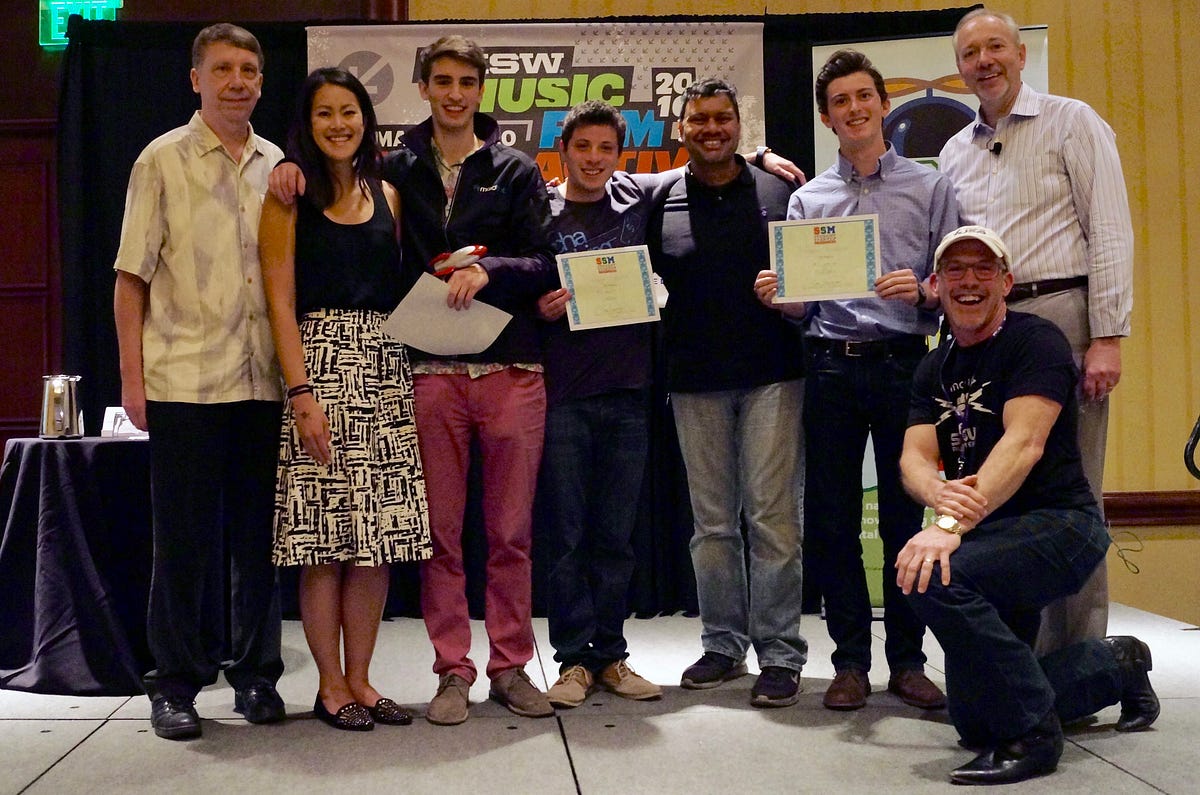No More Dull, Dirty, & Dangerous Work: An Interview with Micah Estis Green, Founder of Maidbot & Pioneer of the Connected Hotel

Micah Estis Green has always had an interest in robots — he’s been putting together robots from kits since he was five years old.
But it wasn’t until his freshman year at Cornell University as a business major with a focus in hospitality that he combined his love of robotics with a fresh take on an old-school industry. Now Micah is Founder, CEO, and President at Maidbot, a robotics company revolutionizing the often sluggish hospitality industry.
It all started in a class called Intro to Hotel Operations. As part of his coursework, Micah was working as a hotel housekeeper when he began to notice the incredible inefficiencies in this particular part of hotel operations.
Micah: “I had to work in hotel operations for one of my classes; I worked as a housekeeper cleaning the rooms. That one eight-hour shift quickly turned into months of work because I was really intrigued.
The hotel cleaning system is completely broken and I just was shocked that the world’s biggest industry, at least by number of employees, has such a huge issue around one segment and particularly around housekeeping. Costs are going up. Injuries have gone up and the injuries have a huge impact on quality of life for the workers. Hotels currently have the second-highest rate of injuries in the service sector. There are more workers comp claims. There’s also the inconsistency and just a lack of real ability to manage it at a quantitative level.
Tying that all together, I really saw a huge opportunity for robotics in the hotel industry because that’s what they’re built for: tasks that are dull, dirty, and dangerous.”
With his background in robotics combined with a fresh perspective in hospitality, Micah knew that there was an enormous opportunity before him.
However, at this point, Micah was also the founder of SharkPuncher, an iOS arcade-style multi-player racing game where players compete to punch the most sharks in a given time. He had already been working on SharkPuncher for a year and was feeling pulled between his existing venture and the enticing prospects of the new one.
Micah: “I was in a bind. Which direction should I go? Should I keep working and grow SharkPuncher, which I had been working on for the past year, and build that out? Or should I shift into this new project?”
Unsure of which to choose, Micah asked a professor for advice. She referred him to Pam Silverstein, a serial entrepreneur. They met up one decisive day in February.
Micah: “It was February 7th, 2015. We got to know each other and soon she dove in and said, ‘What are you concerned about?’
Pretty quickly, it was clear that I was really passionate about the robotics side — about really and completely starting and pioneering a robotics revolution. This would be something new — I would not just be adding to an industry that was already pretty mapped out, such as smartphone apps.
Pam pretty much told me, ‘F**k it. Do it. Go with it. Try it.’ I did and that day, I literally went to my friend and said, ‘Hey, I need a logo tonight. We need to get a banner printed for the career fair on Monday.’ It was Saturday. He did it in ten minutes. I was like, ‘Perfect, let’s go.’ Ordered it, got everything in time and then set up shop at the career fair.”
The career fair was a success; with his makeshift booth, last-minute logo, and ability to spread the gospel of the robotics revolution, Micah built a small team of fellow students. He also came across Rev Ithaca’s booth that day. The connection was made and Maidbot was a member of Rev’s Hardware Accelerator inaugural class.
At Rev, the Maidbot crew hit the ground running to validate their product:
Micah: “We interviewed hundreds of potential customers. We interviewed tons of room attendants, we went into hotels nearby and then we started compiling the team, we got some engineers, both electrical and software. We went out to build the prototype and really prove out the concept and prove out that people need this more than they just want it.
From there we started just gaining a lot of traction. Hotels were super excited and through that we were able to get a little funding. Through that we were able to hire a few people.”
At the end of the summer of Micah’s freshman year, he realized they needed to find a CTO in order to further advance their product. Micah’s mentor recommended that he speak with David Moroniti, a software and hardware expert and professor teaching autonomous vehicle design at Georgia Tech. After a few calls with Micah, David quit his job and moved to Ithaca to work on Maidbot fulltime (he is still their CTO today). With the addition of David, Maidbot finalized the first version of their fully autonomous industrial cleaning machine: Rosie (inspired by The Jetsons’ robotic maid).

Micah: “Rosie was our first product, focusing on cleaning up floors in bedrooms and public spaces, ballrooms, lobbies, hallways. Rosie was essentially a mini self-driving cart that happens to clean floors. So we’re using the same technology behind self-driving cars and same software set-up, so the robot is really versatile. That allows us to tackle hotels, but also airports and malls and universities — essentially anywhere that has floors.
At this point, Maidbot was mainly focused on the efficiency and safety of automated cleaning. A major pivot in their business model came after a hotel executive asked them if Rosie could detect odors (especially the musty odor of growing mildew that can plague some areas of hotels).
Micah: “We said, ‘Wow, that’s interesting. We’ll look into it.’ So, we looked into it and learned that it’s ridiculously expensive to get some of the sensors that actually measure odor; it’s also pretty qualitative.
But, there are sensors that quantitatively measure contributors to mold, like moisture and humidity. So we put sensors on Rosie to infer if there’s mold or not within a room, given the quantity of mold contributors. This enables us to get really granular and start predicting things that no one is able to predict with the human eye. Such as if there’s mold growing or about to grow.”
With the added sensors, Rosie became more than just a cleaning robot; it became an autonomous tool to collect, track, and analyze a variety of hotel data, and an integral part of the future of hotels and other real-estate-heavy businesses: the smart, connected commercial building.
Micah: “With Rosie, we are putting a computer in almost every room every day. So, we saw the huge potential in shifting from just cleaning, though we’re still doing that, to focusing a lot on the data side and the fact that Rosie is an incredible data platform. It’s really the first that turns any building into a smart building and allows anyone, from an airport to a hotel, to get just way more access. We really want to own the physical data space.
With our platform, we get data about the status of the actual building as well as what are people doing within the building. So, for example, temperature. We can track temperature. We can integrate our platform with other smart devices. We can see that the temperature in this part of the room is actually warmer because of the sun, or other factors, and we can reset the thermostat to compensate.
Because it’s mobile, I can tell you about every square inch of the room, versus just the room itself. No-one’s been there, no-one’s ever done that.”
Along with being a revolutionary in the hospitality space, what makes Maidbot even more inspiring is that the company is still relatively new, having been started in 2015.
Micah: “Things have progressed a lot since last year and the year before, too. We’ve done a bunch of competitions. It’s been really exciting and moving really, really fast. We’re up to 18 people on the team. We have a very solid amount of funding from the top investors in the world, both in Silicon Valley and outside. We are also very grateful to have strong strategic partners.”
One of the competitions that Maidbot participated in early on was Student Startup Madness. In March 2016, Maidbot was crowned the winner of the 2015–2016 tournament, which resulted in press, connections, and prestige for the then-fledgling startup.

Micah: “Student Startup Madness was awesome. Not only did we and the work get exposure, we also got introduced to a lot of people. Actually at the event, a few VCs came up to us. We were asked to be a part of two accelerator programs that day. A multi-billion-dollar VC come up to us and ask me to grab a coffee real quick. It resulted in a lot of introductions, which at the time was so, so useful.
It was humbling, to win. And then I was just really, really excited and amped. It wasn’t the first time we had won, but it was big, and it just felt really good. We were working many hours a day, you know. Constantly had all these problems and learning you need to eat problems for breakfast. It was just so nice, I guess somewhat of a relief in a sense, too. A different form of validation. If you win or lose, it doesn’t mean you’re going to become a huge company or not. It just shows that those down-hills, are worth it. Move forward.”
For any students reading this, who may still be on the fence about entering into that pitch competition, about reaching out to someone you admire for advice, or for starting at all, Micah has a de-facto way to cut through the insecurity.
Micah: “I always ask myself, ‘What’s the worst-case scenario?’ That guides almost every decision I make. What is the worst-case scenario? Okay, maybe they stumble on some words. Okay, maybe their idea isn’t fully fleshed out. Okay, maybe they don’t win the money. With these scenarios, there’s great exposure, great experience. There’s nothing like it in the world. If you get that exposure, especially at this age, it’s just a huge opportunity. So, I would just say, ‘You should definitely go for it. There’s no reason not to.’”
Micah continues to go for it. Micah was named a Theil Fellow in June 2017 and will be speaking at ENTER2018 eTourism Conference in Jönköping, Sweden. The Maidbot team is now 18 people and growing.
